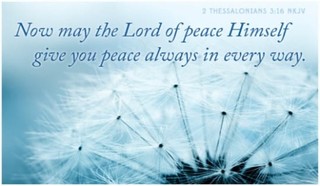
- Recent Translations
- All Translations
Kehillah in Thessalonika II 3:2
Share
Settings
Images for Kehillah in Thessalonika II 3:2

Kehillah in Thessalonika II 3:2 Meaning and Commentary
And that we may be delivered from unreasonable and wicked
men
Either from the unbelieving Jews, see ( Romans 15:30 Romans 15:31 ) who were the avowed enemies of the Gospel, and did all they could to hinder the spread of it; and who were the implacable and constant adversaries of the apostle; who often lay in wait for him, and opposed him, and gave him trouble in all places, stirring up the people against him: or from the false teachers, and those of their party, who are the false brethren by whom he often was in perils; who were enemies of the cross of Christ, and great hindrances to the spread of the Gospel; being men of absurd principles, and of wicked lives and conversations, whereby they perverted the Gospel of Christ, brought a reproach upon it, stumbled some, and overthrew the faith of others; and from these the apostle desires to be delivered:
for all men have not faith:
no man has faith of himself, it is the gift of God, and the operation of his Spirit; and it is only given to the elect of God, who are ordained unto eternal life, and therefore it is called the faith of God's elect; all mankind have it not, none but Christ's sheep; and the reason why others have it not is, because they are not of his sheep. This is a truth; but rather the true sense of the words is, that all that are professors of religion, and members of churches, and even all that are preachers of the word, have not faith. They may have an historical and temporary faith and the faith of miracles, and even all faith but the true faith; they may profess to believe, and yet not believe, as Simon Magus, and his followers seem to be intended here; for this is given as a reason why the apostle desired to be delivered from the above men. The Jews say F15, that
``he that studies not in the law, (atwnmyhm hyb wal) , "there is no faith in him"--and it is forbidden to come near him, or to trade with him, or to walk with him, "because there is no faith in him".''The apostle seems to allude to this custom.
F15 Zohar in Lev. fol. 33. 2.